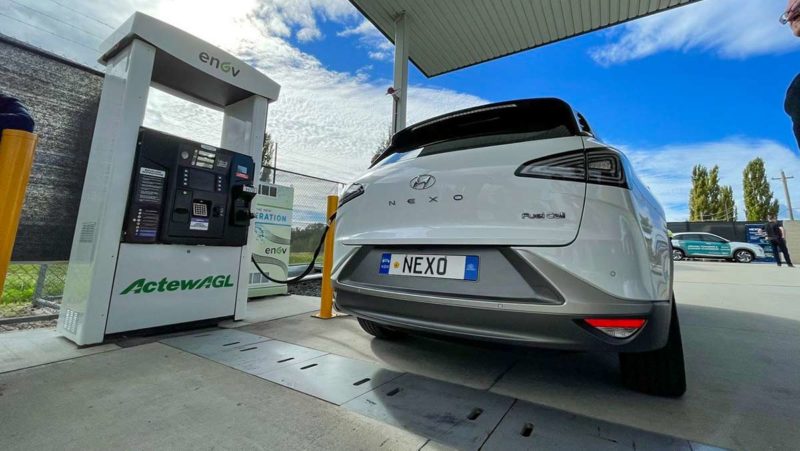Global sales of hydrogen vehicles has taken another dive in the first quarter of 2024, with only 2,382 fuel cell electric vehicles (FCEVs) sold across the world, a decline of 36.4 per cent year-over-year.
New figures from South Korean research firm SNE Research found that the world’s two major FCEV carmakers, Hyundai and Toyota, both saw sales decline, though at wildly differing degrees.
Toyota only sold 868 units in the first quarter, representing a year-on-year decline of 4.2 per cent, while Hyundai sold only 691 units, down from 2,044 in the first quarter of 2023, representing a massive decline of 66.2 per cent.
The paltry numbers for the first quarter compare to the robust EV market, with 9.5 million full battery EVs sold around the world in 2023, and that number expected to reach 17 million in 2024, according to the International Energy Agency.
Hyundai’s massive slump in FCEV sales translated into significant declines in both the United States and Korea, which saw FCEV sales drop by 67 per cent and 70 per cent respectively.
SNE Research’s figures include both passenger and commercial FCEVs, but this is further representative of the struggles of hydrogen vehicle adoption.
For example, Hyundai’s overall decline in sales was driven primarily by plummeting interest in the Nexo SUV, the only FCEV available in the country, with the launch of a next-generation FCEV continually pushed back.
Hyundai’s overall sales figures, however, also include the Elec City bus, a segment which is supposed to be benefiting from hydrogen technology.
Conversely, SNE Research found that sales increased in Europe and Japan, 137.4 per cent and 132 per cent respectively. However, actual sales numbers remain stunted, with only 432 and 262 models sold respectively, highlighting again the inability for hydrogen vehicles to greatly impact the market.
A lack of available FCEV options in virtually every market was matched by fuelling issues in both the United States and Korea. According to Hydrogen Insight, three quarters of hydrogen refuelling stations in South Korea were closed in late 2023 due to a crash in hydrogen supply.
Meanwhile, in the US, Shell announced in February that it would permanently close its fuelling stations for light-duty hydrogen FCEVs in California, citing “hydrogen supply complications and other external market factors.”
Shell’s February decision reflected existing hydrogen supply issues across California, the only state in the US to host hydrogen fuelling stations to begin with.
As SNE Research concludes, the FCEV situation remains plagued by issues, including “the shortage of hydrogen charging infrastructure, defective hydrogen incidents, the increasing charging cost of hydrogen car, and unsolved issues with durability of hydrogen vehicle fuel cell.
“All of these negative factors have made customers turn away from hydrogen vehicles in the green car market.”
Joshua S. Hill is a Melbourne-based journalist who has been writing about climate change, clean technology, and electric vehicles for over 15 years. He has been reporting on electric vehicles and clean technologies for Renew Economy and The Driven since 2012. His preferred mode of transport is his feet.

